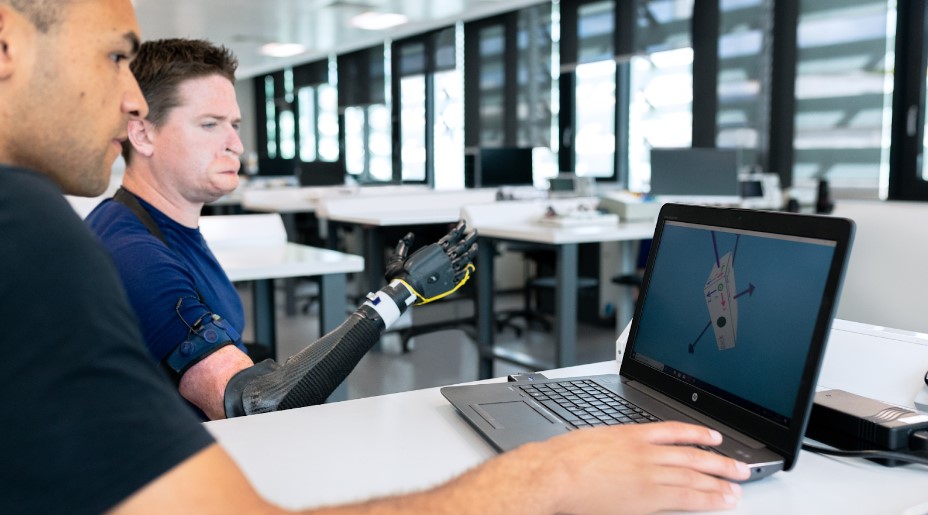The Future of Mechanical Engineering: Top Innovations to Watch
The future of mechanical engineering promises revolutionary advancements with materials like graphene and shape-memory alloys. Integration of AI, additive manufacturing, and renewable energy will drive unparalleled progress in efficiency and sustainability.
Mechanical engineering blends physics and mathematics to innovate and manufacture mechanical systems across industries like aerospace, automotive, energy, and robotics. It’s about problem-solving to enhance efficiency, sustainability, and functionality.
One of the most striking aspects of engineering is its perpetual evolution. As technology advances and societal needs change, the field continually adapts, incorporating new materials, methodologies, and design principles. From the Industrial Revolution to the era of digitalization, engineering has been at the forefront of innovation, driving progress in manufacturing, transportation, and beyond.
Current Landscape
The current landscape of mechanical engineering is marked by rapid technological advancements and a shifting focus towards sustainability and efficiency. Key trends include the integration of artificial intelligence, additive manufacturing, and renewable energy sources, shaping the field’s trajectory towards a more innovative and environmentally conscious future.
Key Players and Influential Figures
In the dynamic field of mechanical engineering, key players and influential figures are driving innovation. Renowned academics and visionary industry leaders inspire progress through groundbreaking research and transformative projects, shaping the future of the discipline.
Technological Advances Driving Change
Technological advances are reshaping mechanical engineering, unlocking new possibilities and revolutionizing traditional practices. From additive manufacturing to smart sensors and virtual reality tools, innovative technologies empower engineers to tackle challenges with greater efficiency and creativity, heralding a new era of transformative innovation.
Innovations in Materials Science
Innovations in Materials Science continue to redefine the possibilities across industries by introducing smart materials with dynamic properties and sustainable alternatives that prioritize environmental consciousness. These advancements pave the way for more efficient and eco-friendly solutions in mechanical engineering and beyond.
Smart Materials and Their Applications
Smart materials represent a cutting-edge frontier in materials science, offering unique properties that respond dynamically to external stimuli. From shape memory alloys used in aerospace engineering to piezoelectric materials in medical devices, these innovative substances enable the creation of adaptable structures and systems that enhance performance and functionality across various industries.
Sustainable Materials in Mechanical Engineering
In response to growing environmental concerns, the integration of sustainable materials has become a central focus in mechanical engineering. Biodegradable polymers, recycled composites, lightweight materials and eco-friendly alloys are among the sustainable alternatives driving change in manufacturing processes and product design. By prioritizing sustainability, mechanical engineers can mitigate the environmental impact of their projects while contributing to the development of a more resilient and eco-conscious society.
Automation and Robotics
Automation and robotics are reshaping industries worldwide, streamlining processes, increasing efficiency, and unlocking new possibilities in manufacturing, healthcare, and beyond, while reducing the need for repetitive tasks. With advancements in artificial intelligence and sensor technologies, these technologies are poised to revolutionize the way we work and interact with machines, driving unprecedented levels of productivity and innovation.
AI Integration in Mechanical Systems
Mechanical systems are undergoing a revolutionary transformation through the integration of artificial intelligence (AI). By harnessing AI-powered algorithms, these systems optimize performance, predict maintenance needs, and adapt to changing conditions, leading to unprecedented levels of productivity and reliability across various industries.
Robotic Engineering: Trends and Developments
Robotic engineering is witnessing continual evolution, characterized by trends such as collaborative robots (cobots), machine learning algorithms, and advanced sensor technologies. These developments enable robots to work alongside humans safely, learn from their environment, and execute complex tasks with precision and speed. The increasing accessibility and adaptability of robotics promise to reshape industries like manufacturing and healthcare, ushering in a new era of automation and innovation.

Energy Efficiency in Mechanical Engineering
Energy efficiency in mechanical engineering is a pivotal focus driving innovation and sustainability across industries. Through advancements in design, technology, and implementation, engineers strive to optimize energy usage, reduce environmental impact, and promote a more sustainable future.
Sustainable Energy Solutions
As mechanical engineering progresses, sustainable energy solutions emerge as vital alternatives to traditional fossil fuels. Engineers are increasingly turning to renewable resources like solar panels, solar, wind, hydroelectricity, and geothermal energy to develop efficient and environmentally friendly solutions, aiming to reduce carbon footprint and address climate change concerns.
Green Technologies Transforming the Industry
The mechanical engineering industry is experiencing a profound transformation driven by green technologies. From energy-efficient HVAC systems to innovative insulation materials and smart grid technologies, these advancements prioritize sustainability and environmental responsibility while simultaneously enhancing performance and reducing operational costs. The renewable energy revolution takes center stage in this transformation, as mechanical engineers spearhead the development and implementation of renewable energy solutions on a global scale.
Biomechanics and Bioengineering
Biomechanics and Bioengineering represent interdisciplinary fields where principles from biology and engineering converge to understand biological systems and develop innovative solutions to improve human health and quality of life. Through the integration of biomechanical principles and advanced engineering techniques, researchers aim to address challenges ranging from understanding human movement to designing biomedical devices and therapies.
Integration of Biological Sciences
The fusion of biological sciences with biomechanics and bioengineering catalyzes a dynamic synergy between nature’s complexities and human innovation. This interdisciplinary blend allows researchers to explore the intricate mechanisms governing biological systems, spanning from molecular interactions to macroscopic phenomena.
Innovations in Prosthetics and Implants
Prosthetics and implants are undergoing revolutionary advancements, reshaping healthcare and human potential. Through breakthroughs in materials, robotics, and tissue engineering, these technologies now offer unparalleled comfort, mobility, and durability. From mind-controlled prosthetic limbs to seamlessly integrated bioengineered implants, these innovations empower individuals with limb loss or musculoskeletal impairments, vastly improving their quality of life.
Nanotechnology in Mechanical Engineering
Nanotechnology in mechanical engineering enables the creation of smaller, more precise components and the development of novel nanomaterials with superior properties, paving the way for groundbreaking innovations in various fields of engineering.
Miniaturization and Its Impact
Miniaturization, enabled by nanotechnology, is transforming the landscape of mechanical engineering. By scaling down components and systems to the nanoscale, engineers can enhance precision, efficiency, and functionality in various applications. From microelectromechanical systems (MEMS) to nanosensors, miniaturization not only reduces size but also opens doors to new possibilities in fields like aerospace, biomedical, and electronics.
Nanomaterials Revolutionizing the Field
Nanomaterials are revolutionizing mechanical engineering by offering unprecedented properties and performance. Through nanoscale manipulation, engineers can develop materials with enhanced strength, conductivity, and durability. Carbon nanotubes and graphene, for instance, exhibit remarkable mechanical and electrical characteristics, promising advancements in aerospace, automotive, and electronics industries. As nanomaterial research progresses, their application potential continues to expand, reshaping the field of mechanical engineering.
Simulation and Modeling
Digital representations crafted through simulation and modeling emulate real-world systems or processes, facilitating analysis of their behavior, prediction of outcomes, or testing of hypotheses, all without the necessity of physical experimentation, thereby offering invaluable insights into complex phenomena.
In product development, virtual prototyping revolutionizes design by enabling quick, cost-effective testing and collaboration through digital simulations, expediting the journey from concept to market.
Computational Advances in Design
Computational tools empower designers across disciplines, leveraging algorithms and AI to explore complex design spaces, generate optimized solutions, and address contemporary challenges efficiently and sustainably.
Internet of Things (IoT) in Mechanical Systems
Incorporating Internet of Things (IoT) technology into mechanical systems transforms conventional engineering practices, facilitating real-time monitoring, data analysis, and predictive maintenance. This integration enhances operational efficiency, reliability, and minimizes downtime by enabling communication, self-diagnosis, and performance optimization within machinery.
Connectivity and Smart Devices
With the proliferation of smart devices and connectivity, the world is witnessing a profound transformation in how we interact with technology. From smartphones to wearable gadgets, the seamless integration of these devices into our daily lives has redefined convenience, communication, and efficiency.
IoT Applications in Manufacturing
The manufacturing industry stands at the forefront of IoT adoption, leveraging connected sensors, data analytics, and automation to streamline operations and drive innovation. From predictive maintenance to supply chain optimization, IoT applications in manufacturing are revolutionizing production processes, improving quality control, and reducing costs.
Human-Machine Collaboration
Human-machine collaboration involves humans and intelligent machines working together to enhance productivity and problem-solving across various domains, optimizing workflows and fostering innovation.
Augmented Reality in Mechanical Engineering
Augmented reality (AR) is revolutionizing mechanical engineering by digitally enhancing the physical world, offering engineers immersive experiences for design, maintenance, and training. AR applications streamline processes, from virtual prototyping to on-site troubleshooting, driving efficiency in mechanical engineering workflows.
Enhancing Workforce Productivity
In today’s competitive environment, maximizing workforce productivity is essential for organizational success. Through the adoption of innovative technologies, streamlined processes, and effective collaboration tools, businesses can optimize employee training, workflow systems, and foster a culture of continuous improvement to drive productivity, innovation, and overall success.
Aerospace Engineering Innovations
Innovations in aerospace engineering encompass pioneering developments in aircraft and spacecraft design, propulsion systems, materials science, and aerodynamics, all aimed at reducing carbon emissions. These advancements redefine the aerospace industry, enhancing aviation efficiency, expanding space exploration capabilities, and deepening our understanding of the universe.
Advances in Aircraft Design
The field of aerospace engineering witnesses ongoing progress in aircraft design, with innovations aimed at improving performance, fuel efficiency, and safety. Lightweight composite materials, advanced propulsion systems, and aerodynamic optimizations are revolutionizing contemporary aviation, reshaping the future of air transportation.
Space Exploration and Mechanical Engineering
The pursuit of space exploration serves as a catalyst for technological advancement in mechanical engineering, facilitating the creation of spacecraft, rovers, and instruments tailored for celestial exploration. Collaborations between mechanical engineers and space agencies spearhead innovative solutions, expanding humanity’s knowledge of the universe and sparking inspiration across generations.
Future of 3D Printing
The future of 3D printing is marked by transformative advancements spanning multiple industries. Ongoing breakthroughs in additive manufacturing technologies and its integration into production processes are set to revolutionize manufacturing, healthcare, architecture, and more, promising unparalleled levels of customization, efficiency, and innovation.
Additive Manufacturing Breakthroughs
Progress in additive manufacturing is transforming production methods. Breakthroughs in materials and techniques are expanding design capabilities and promoting sustainable manufacturing practices. Electric motors play a crucial role in additive manufacturing processes, powering the intricate movements of 3D printers and enabling precise deposition of materials layer by layer.
Impact on Rapid Prototyping
The advent of additive manufacturing has revolutionized rapid prototyping, accelerating the product development cycle. By enabling swift iteration and cost-effective production of prototypes, businesses can expedite innovation and respond more effectively to market dynamics and consumer needs.
Conclusion
Mechanical engineering is experiencing a profound transformation driven by innovation and technology. With advancements in aerospace, 3D printing, and AI integration, the field is set for unprecedented growth. Collaborative efforts across disciplines have led to breakthroughs in materials science, robotics, sustainable energy, and biomechanics. As it addresses global challenges and drives progress, mechanical engineering shapes a future of innovation, sustainability, and human advancement.
Experience Excellence in Mechanical Engineering Recruiting – Partner with Gables Search Group!
